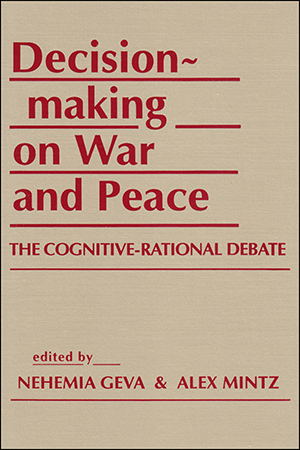Reviewing, comparing, and contrasting major models of foreign policy decisionmaking, contributors to this volume make a substantial contribution to the debate between cognitive and rational theories of decisionmaking.
The authors describe the leading cognitive and rational models and introduce alternative models of foreign policy choice (prospect theory, poliheuristic theory, theory of moves, and two-level games). They also identify conditions under which one strategy is more appropriate than another. Their collective work addresses the questions at the core of the debate about the actual decisionmaking behavior of political leaders.
Nehemia Geva is associate professor of political science at Texas A&M University. He has written widely on cognitive processes in decisionmaking, experimental analyses of choice, and democratic peace. Alex Mintz is dean of the Lauder School of Government, Diplomacy and Strategy at the Interdisciplinary Center in Herzliya, Israel. His numerous publications include The Political Economy of Military Spending in the United States.
"Decisionmaking on War and Peace is a useful reference for the professional scholar interested in foreign policy analysis and international conflict processes [and] a valuable addition to the reading lists of graduate students preparing for comprehensive exams in these areas. The former will find the book a useful opportunity to rethink the issues raised by the various chapter authors. The latter will find it valuable for sharpening their understanding of the conceptual issues raised and the different research strategies used."—Stephen G. Walker, Mershon International Studies Review








